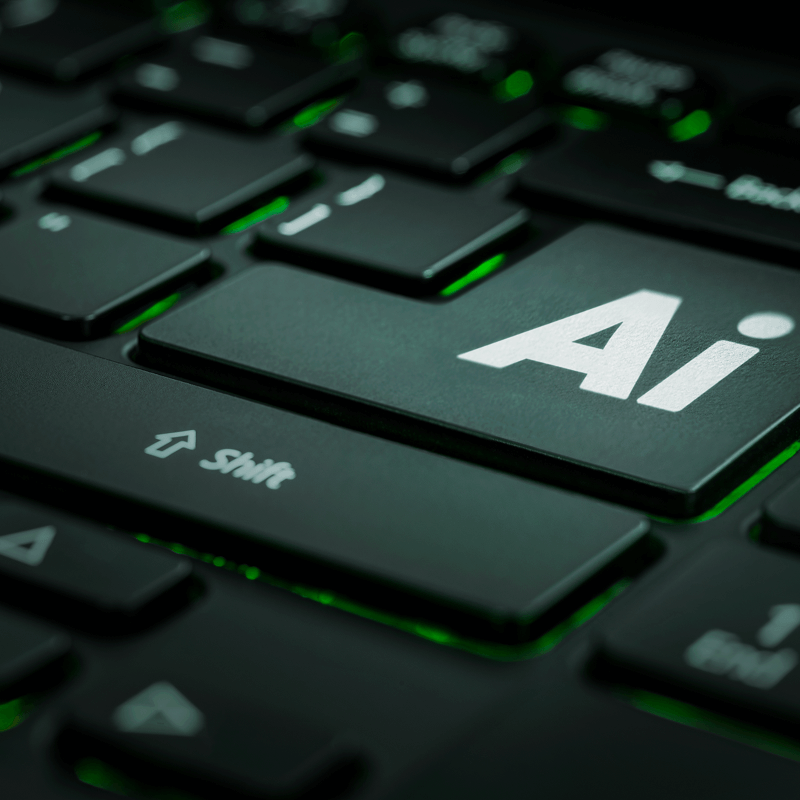Ultimate Guide: How Teachers Can Use AI to Create an Effective Teaching Plan
Discover how teachers can revolutionize their teaching plan using AI. Learn step-by-step methods, tools, benefits, and best practices for smarter planning in the classroom.

Integrate your CRM with other tools
Lorem ipsum dolor sit amet, consectetur adipiscing elit lobortis arcu enim urna adipiscing praesent velit viverra sit semper lorem eu cursus vel hendrerit elementum morbi curabitur etiam nibh justo, lorem aliquet donec sed sit mi dignissim at ante massa mattis.
- Neque sodales ut etiam sit amet nisl purus non tellus orci ac auctor
- Adipiscing elit ut aliquam purus sit amet viverra suspendisse potenti
- Mauris commodo quis imperdiet massa tincidunt nunc pulvinar
- Adipiscing elit ut aliquam purus sit amet viverra suspendisse potenti
How to connect your integrations to your CRM platform?
Vitae congue eu consequat ac felis placerat vestibulum lectus mauris ultrices cursus sit amet dictum sit amet justo donec enim diam porttitor lacus luctus accumsan tortor posuere praesent tristique magna sit amet purus gravida quis blandit turpis.

Techbit is the next-gen CRM platform designed for modern sales teams
At risus viverra adipiscing at in tellus integer feugiat nisl pretium fusce id velit ut tortor sagittis orci a scelerisque purus semper eget at lectus urna duis convallis. porta nibh venenatis cras sed felis eget neque laoreet suspendisse interdum consectetur libero id faucibus nisl donec pretium vulputate sapien nec sagittis aliquam nunc lobortis mattis aliquam faucibus purus in.
- Neque sodales ut etiam sit amet nisl purus non tellus orci ac auctor
- Adipiscing elit ut aliquam purus sit amet viverra suspendisse potenti venenatis
- Mauris commodo quis imperdiet massa at in tincidunt nunc pulvinar
- Adipiscing elit ut aliquam purus sit amet viverra suspendisse potenti consectetur
Why using the right CRM can make your team close more sales?
Nisi quis eleifend quam adipiscing vitae aliquet bibendum enim facilisis gravida neque. Velit euismod in pellentesque massa placerat volutpat lacus laoreet non curabitur gravida odio aenean sed adipiscing diam donec adipiscing tristique risus. amet est placerat.
“Nisi quis eleifend quam adipiscing vitae aliquet bibendum enim facilisis gravida neque velit euismod in pellentesque massa placerat.”
What other features would you like to see in our product?
Eget lorem dolor sed viverra ipsum nunc aliquet bibendum felis donec et odio pellentesque diam volutpat commodo sed egestas aliquam sem fringilla ut morbi tincidunt augue interdum velit euismod eu tincidunt tortor aliquam nulla facilisi aenean sed adipiscing diam donec adipiscing ut lectus arcu bibendum at varius vel pharetra nibh venenatis cras sed felis eget.
Introduction to Teaching Plan in the AI Era
What is a Teaching Plan?
A teaching plan is a structured guide that educators use to organize lesson objectives, learning activities, materials, assessments, and timing. It acts as a blueprint that ensures classroom time is used effectively and students meet educational goals.
The Role of AI in Modern Education
Artificial Intelligence (AI) is reshaping every aspect of our lives, including education. In classrooms, AI enables teachers to create personalized learning experiences, automate lesson planning, and analyze student performance more efficiently than ever before. With AI, the teaching plan becomes more dynamic, data-informed, and adaptable to real-time classroom needs.
Benefits of AI in Teaching Plan Development
Time Efficiency
Teachers spend countless hours planning lessons. AI tools can generate lesson structures, activity ideas, and even assessments in seconds—freeing up time for direct student engagement and creative instruction.
Personalization for Diverse Learners
AI can tailor content to suit different learning speeds and styles. It offers differentiated resources for visual, auditory, and kinesthetic learners and adapts content for those needing additional support.
Improved Engagement
AI-enabled teaching plans often integrate multimedia, interactive elements, and gamification—enhancing student motivation and involvement.
Key Features of AI-Powered Teaching Tools
Adaptive Learning Technology
AI analyzes student interactions and adjusts difficulty levels, feedback, and lesson recommendations based on individual performance.
Data-Driven Insights
AI tools can track student progress, highlight weak areas, and provide suggestions for re-teaching or enrichment activities.
Automation Capabilities
From lesson generation to quiz creation and attendance tracking, AI streamlines many time-consuming tasks.
Getting Started: Choosing the Right AI Tool
Free vs. Paid Tools
Many AI platforms like ChatGPT, Curipod, and Canva for Education offer free versions with basic features. Paid subscriptions usually unlock collaborative tools, integrations, and more customization options.
User-Friendly Interfaces
The best tools are intuitive and easy to navigate, even for educators with limited tech experience.
Integration with LMS
Look for AI platforms that sync with Google Classroom, Canvas, or other Learning Management Systems (LMS) for seamless teaching plan deployment.
Step-by-Step: Creating a Teaching Plan with AI
Step 1: Setting Objectives
Begin by entering your learning goals. The AI will use these to shape content aligned with educational standards.
Step 2: Inputting Curriculum Guidelines
Upload curriculum frameworks or specify academic standards (e.g., Common Core, IB) to ensure compliance.
Step 3: Generating Lesson Activities
Let the AI suggest reading materials, group activities, digital resources, and assessment questions tailored to your objectives.
Step 4: Reviewing & Customizing Outputs
While AI provides a strong foundation, human oversight is essential. Teachers should adapt plans based on classroom dynamics and teaching styles.
AI for Differentiated Instruction
Catering to Different Learning Styles
AI can recommend various teaching methods—like videos for visual learners or hands-on experiments for kinesthetic learners—making the lesson more inclusive.
Supporting Special Education Needs
Some platforms offer features to accommodate students with learning disabilities, including speech-to-text, text-to-speech, and dyslexia-friendly fonts.
Using AI to Monitor Student Progress
Real-Time Feedback
Many AI tools offer dashboards showing student performance in real time, helping teachers intervene promptly.
Predictive Analytics for At-Risk Students
AI identifies students who may fall behind and suggests targeted remediation strategies before major issues arise.
Collaborative Planning Using AI Tools
Team-Teaching Features
Some AI platforms allow teachers to co-create teaching plans and share editable documents, fostering teamwork.
Sharing Plans Across Departments
Cross-disciplinary planning becomes more streamlined when departments use a common AI tool to sync lesson goals and activities.
Common Pitfalls and How to Avoid Them
Overreliance on Automation
AI is a support tool—not a replacement for professional judgment. Teachers must evaluate AI-generated content for accuracy and relevance.
Ensuring Content Accuracy
Always fact-check. Some AI tools may generate outdated or incorrect information if not guided properly.
Data Privacy and Ethical Concerns in AI Use
Managing Student Data Responsibly
Always choose AI tools that are FERPA- and GDPR-compliant, ensuring that student data is secure and not used for unauthorized purposes.
Bias in AI Algorithms
Stay aware of the potential for algorithmic bias. Diverse data inputs and regular audits can reduce this risk.
Case Studies: Real Teachers Using AI in Planning
Elementary School Example
Ms. Carter, a third-grade teacher, uses Curipod to generate interactive slides for her reading lessons. It saves her 4–5 hours weekly and improves classroom engagement.
High School and College Use Cases
At Jefferson High School, teachers use Canva’s lesson planner templates combined with ChatGPT-generated content for AP classes. College professors employ AI tools to flip classrooms and offer pre-recorded lectures with adaptive quizzes.
Comparing Popular AI Teaching Plan Generators
Enhancing Creativity with AI in the Classroom
Brainstorming Interactive Activities
Need a group activity or debate topic? AI can generate ideas based on subject, grade, and learning outcomes.
Incorporating Multimedia Content
AI tools can suggest images, videos, and even sound clips to enhance visual learning and keep lessons dynamic.
Training and Upskilling for Teachers
AI Literacy Workshops
Schools are now offering workshops that help teachers understand AI basics, ethics, and practical uses.
Online Courses and Certifications
Platforms like Coursera and EdX provide specialized courses in AI in Education, helping educators stay ahead of the curve.
Future of Teaching Plans with AI Integration
Trends in EdTech
AI will continue evolving—expect more voice assistants, VR-based learning, and enhanced data visualization in teaching plans.
The Evolution of Teacher Roles
AI won’t replace teachers, but it will reshape their role into facilitators of customized, high-impact learning experiences.
Frequently Asked Questions (FAQs)
1. Can AI completely replace a teacher’s teaching plan?
No. AI can support and streamline the process, but human judgment is essential for adapting to real-world classroom dynamics.
2. Are AI tools safe to use in schools?
Yes, if the tools comply with privacy laws like FERPA and GDPR.
3. What are the best free AI tools for lesson planning?
ChatGPT, Canva for Education, and Curipod are popular and effective.
4. How much time can AI save teachers weekly?
Teachers report saving between 3 to 10 hours a week using AI-based planning tools.
5. Can AI personalize learning for every student?
It can adapt content to different levels and styles, but full personalization still needs teacher input.
6. Is AI suitable for all age groups in education?
Yes. AI tools can be tailored for kindergarten through university-level instruction.
Conclusion: Embracing AI as a Teaching Ally
AI is not just a buzzword—it’s a game-changer for education. By integrating AI into the teaching plan process, teachers can save time, enhance student learning, and keep up with educational trends. The future belongs to those educators who adapt early and use technology to elevate the teaching experience.


.png)





